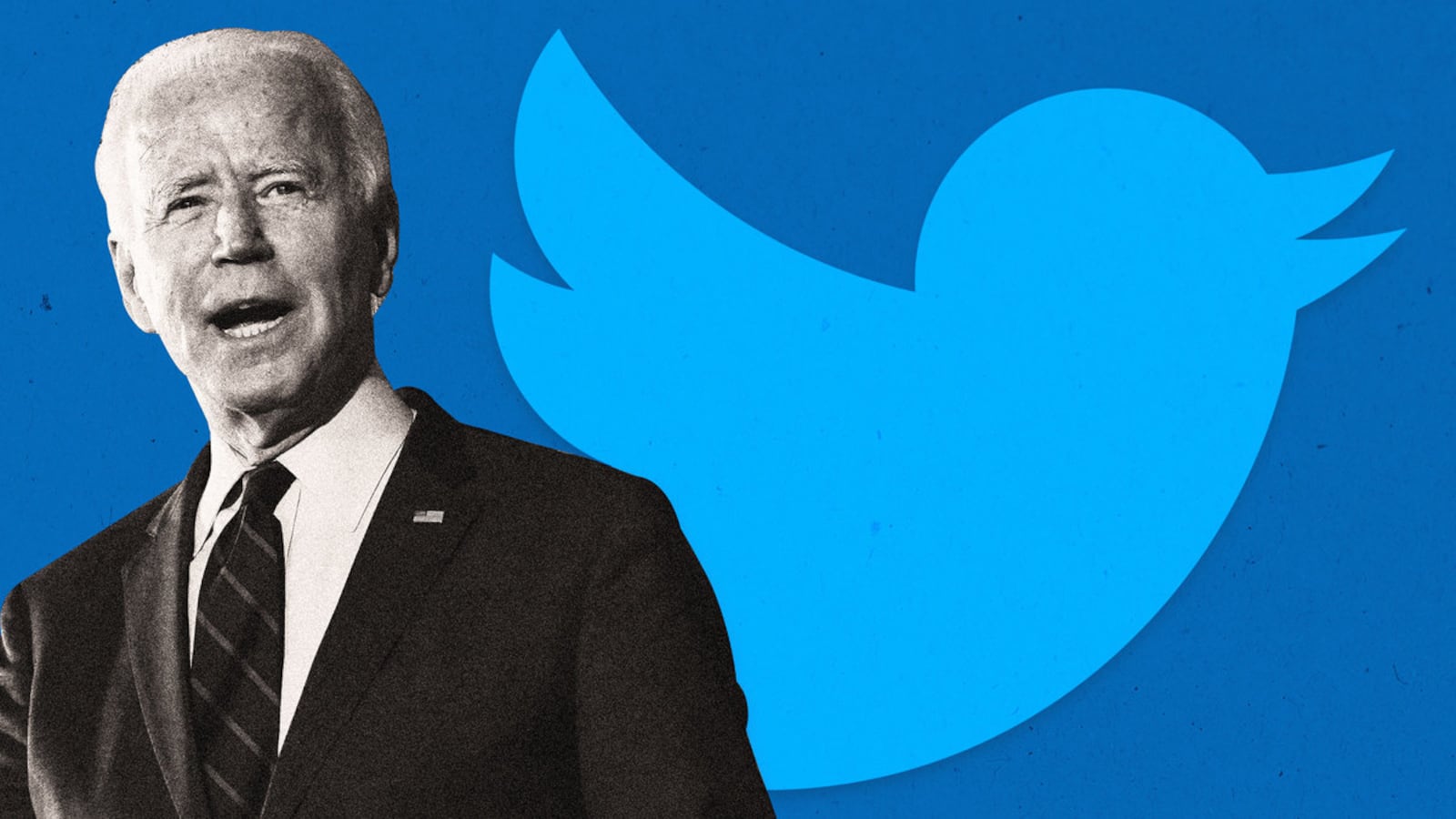Minutes before Donald Trump announced via tweet that he had COVID-19, Joe Biden superfan Jon Cooper tried to break some news of his own about the president’s health. Trump, Cooper told his roughly 600,000 followers, wasn’t just inflected with a deadly disease, he’d also been prescribed Plavix, an anti-clotting drug, for it.
“SCOOP: A Republican source with White House ties just told me ‘From what I hear, Trump is being treated with Plavix,’” Cooper announced in a late night post on Oct. 2.
Then came the caveat. “I don’t know if that’s true,” he added, “just passing it along for those who are more knowledgeable.”
“Whoa if true” missives like this don’t often pack such a punch. A Plavix prescription would suggest the president was facing a serious risk of heart attack or stroke. Cooper had taken a serious story and raised the stakes far higher. Buoyed by Twitter users scrambling for information about Trump’s health, his tweet racked up more than 1,000 retweets.
It was, it turned out, quite wrong. Plavix wasn’t mentioned in any letters from Trump’s doctors about the drugs he was taking. Nor has it been suggested as a medication the president may be taking by actual medical experts.
Two weeks later, though, Cooper isn’t complaining that he was fed some bogus tip by a source. That’s because he claims to have no idea who told him about it in the first place.
“I’m not trying to evade here, but I don’t remember now who told me that, because literally it was 10,000 tweets ago,” Cooper told The Daily Beast.
Cooper is a creature of the modern media ecosystem: a former small time politico who used the lax editorial standards of social media platforms to parlay his partisan instincts into a form of mini-celebrity.
His first foray into the spotlight came years ago, when he was a progressive local politician on Long Island and the head of an ultraviolet lighting company. He rose to some local political fame after he backed Barack Obama’s 2008 presidential primary bid early, when most New York politicos were still supporting Hillary Clinton.
But it wasn’t until Trump ran for president that he felt the need to tweet. Four years later, he tweets constantly, describing his post strategy as publishing whatever comes to his mind or what he hears from a friend in politics while he eats lunch or lies in bed.
“It was Trump’s election that drove me to tweet like a maniac,” Cooper said.
His maniacal nature has had its benefits. Cooper is an anti-Trump Twitter star, with a blue check mark next to his name and 610,000 followers, including Rep. Eric Swalwell (D-CA), disgraced former #Resistance Twitter star Michael Avenatti, and a large number of reporters.
But there have been—shall we call them—bumps along the way. In 2017, Cooper tweeted a picture he claimed was an old photo of a furious, high-school-age Sarah Huckabee Sanders.
“Sanders even looked habitually pissed when she was a teenager!” Cooper wrote. “I guess having @GovMikeHuckabee as your dad does that to you.”
Unfortunately for Cooper, the picture was actually a picture of actress Busy Philipps in Freaks & Geeks.
“THIS IS ME FROM FREAKS AND GEEKS,” Philipps tweeted. “FAKE NEWS.”
In 2019, Cooper landed on a Politico list covering up the year’s worst political predictions, for his claim that Trump would "resign from office before he can be impeached, citing health reasons.” Politico described Cooper as a #Resistance Twitter figure “prone to outlandish statements that rack up retweets from his fellow partisans.”
Occasionally, Cooper’s tweets have had actual real world consequences. In September, he claimed that Israeli Prime Minister Benjamin Netanyahu was at odds with Trump’s staff over social distancing restrictions during a Washington visit. The posts were picked up in Israeli media, but the White House denied any spat, and no reporters ever substantiated Cooper’s claims.
Cooper views his role in the political universe as a cheerleader for progressive causes and candidates. He doesn’t think of himself as a journalist, even if he passes off information as if he’s reported it out, often claiming to have a “Scoop” from some unidentifiable source. Instead, Twitter for him is a vehicle for vomiting out the various things that are moving through his head.
“All I do is tweet what comes to my mind,” he explained.
Cooper’s slipperiness with the truth recalls other Twitter #Resistance personalities like former British MP Louise Mensch, who once tweeted that former Trump adviser Steve Bannon could face “the death penalty, for espionage.”
But while Cooper’s Twitter compatriots have stopped making such sweeping claims about Trump—or, as in the case of the Krassenstein brothers, been banned from the site entirely—Cooper appears to have only stepped up his tweets in the waning days of Trump’s first term. In a world with cavalier reporting and lax editorial standards, his approach has struck individuals as shockingly reckless.
“Unfollow this lying grifter Jon Cooper,” prominent Twitter personality and former Democratic operative Yashar Ali tweeted after another dubiously factual Cooper tweeted went viral. “Enough.”
These criticisms seem to have done little to dampen Cooper’s love of explosive, questionably accurate tweets. Indeed, one day after passing on word that Trump was on Plavix, he was quoting another “GOP source” who had told him that Trump was near-death while hospitalized in Walter Reed National Military Medical Center.
“Despite all the meds and the presidential care, they could lose him within 3 to 4 days,” Cooper tweeted, quoting his “source.”
That tweet went massively viral, scoring more 20,000 retweets and nearly 55,000 favorites. But again, Cooper said he was neither entirely clear who told him about it nor moved by the notion that he should verify his claims before blasting them out
“What’s the alternative?” Cooper said. “There’s no way that I can vet any of this.”
On Oct. 6, three days after warning about Trump’s possible death, Cooper was at it again, this time tweeting that the president was hoping to resign before the election while negotiating to receive a pardon from Vice President Mike Pence. Once more, the claim was attributed to a “GOP source.”
Cooper’s tweet earned more than 18,000 retweets. Asked to explain the source of his claim, Cooper said he was just quoting @USANewsAgency, an obscure Twitter account he tagged in the tweet.
But @USANewsAgency and a number of related, minor “news” accounts were suspended from Twitter shortly after Cooper’s tweets, suggesting that they’re not the kind of rock-solid sources to base a claim about Trump seeking a pardon on.
“Whether it’s accurate or not, I can’t vet that,” Cooper said. “Hopefully someone who saw that tweet who is a reporter maybe will pursue it, and find out whether it was indeed true that there were talks about the possibility of Trump resigning in return for a pardon.”








